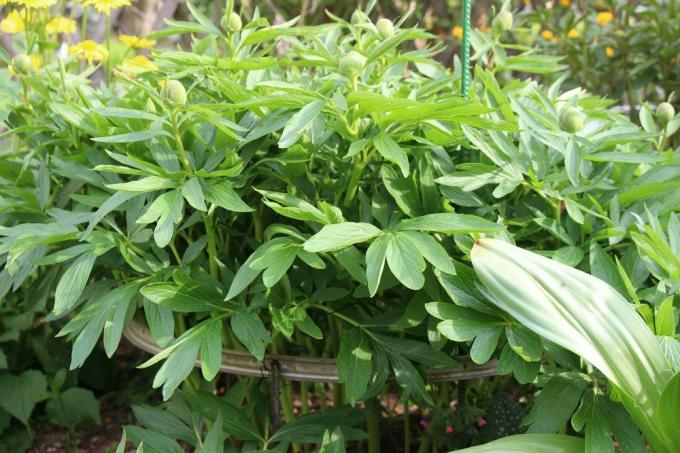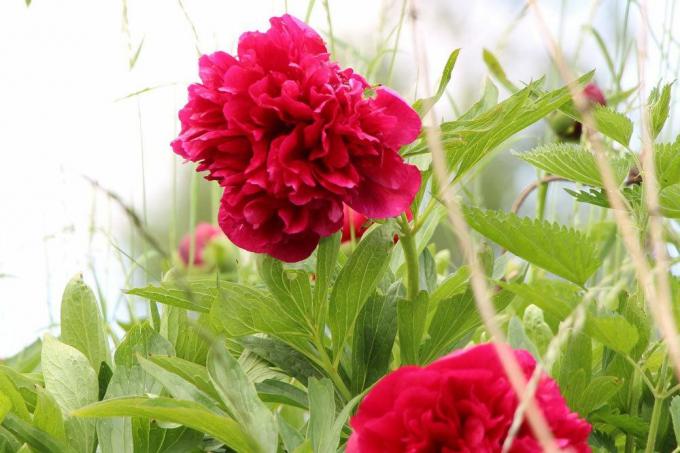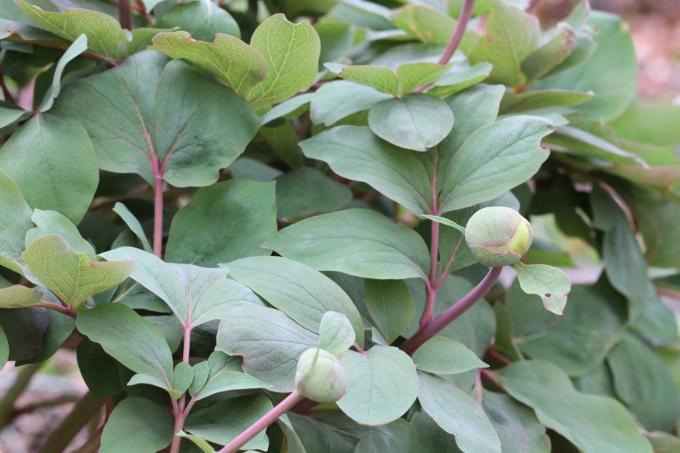
table of contents
- Alkaloid paeonin spoils the appetite
- Tips for first aid measures
- Toxic to dogs and cats
- Tips for immediate action
- Toxic to horses
- Life-threatening for small animals
- A medicinal plant in knowledgeable hands
In spring they cast a spell over us with their magnificent flowers in bright colors. Very tempting for creative hobby cooks to decorate food and drinks with the flowers. Where Peonies bloom and give off their seductive scent, they also attract curious cats and dogs to nibble on. For insatiable horses, all plants are good food anyway. The question arises as to whether peonies are poisonous? Read the answer here.
Alkaloid paeonin spoils the appetite
The flowers of numerous plants have found their way into the modern kitchen to decorate cold and warm dishes artfully. As a result, it is tempting to use the majestic flowers of a peony to add culinary flair to fresh dishes.
Likewise, the lush green leaves could tempt you to prepare them as a salad or turn the fleshy roots into tasty vegetables. Admittedly, this plan could be very upsetting for you and your guests. Peonies contain the alkaloid paeonin in all parts, which is toxic to humans in large quantities.
Intentional or unintentional consumption causes these unpleasant symptoms of intoxication:
- Violent nausea
- Stomach and intestinal cramps
- Vomiting and diarrhea
- Severe colic
A single petal or a few seeds of a paeonia do not cause these complaints. However, there is a lack of well-founded, scientific knowledge as to where the critical dose begins. Therefore, especially in the family garden with small children, it makes sense to locate peonies out of the reach of small arms and mouths wide as a barrier. Older children should be made aware of the dangers of eating flowers, leaves, seeds and roots.

Tips for first aid measures
If adults or children show typical symptoms of poisoning, please keep calm. Due to the low concentration of toxic substances, no life-threatening incidents have been reported to date. With the following, careful measures you can keep the extent of the health complaints as a result of the consumption of peonies within tolerable limits.
Measures:
- remove any plant residues from the mouth of children
- Drink still water or chamomile tea in small sips
- Milk is completely unsuitable as an antidote
- never induce vomiting in affected people with the help of salt water
As a precaution, you should contact your general practitioner or pediatrician by telephone if you have minor complaints. If the doctor recommends a visit to the practice, take the plant parts with you in a bag. If in doubt, call the responsible poison control center to get competent advice.
Toxic to dogs and cats
Just as the substances in peonies hit us humans on the stomach, dogs and cats are not immune either. The smaller the animal, the greater the risk of symptoms of poisoning. This means that puppies and young kittens are primarily at risk because they are extremely curious and have not yet received extensive training.
Older pets are rarely harmed when they nibble on a farm rose. Since Paeonia can be classified as slightly poisonous, health-threatening quantities are only rarely eaten.
Tips for immediate action
If your pet has typical symptoms of poisoning, check its mouth immediately to see whether there are any plant residues in it. Take this out and secure the material in a plastic bag. Signs of poisoning include increased salivation, convulsive movements, apathy, and disorientation.
Transport the dog or cat to the nearest veterinarian as quickly as possible and take the secured plant material with you. Attempts at self-medication could exacerbate the dilemma.

Toxic to horses
Peonies are assigned to the mildly poisonous plants for horses. Compared to a dog and a cat, a horse appears enormous; however, the animals are very sensitive to gastric toxins. Just a few bites of ivy can kill a horse in agony. Paeonia are far from such a potential hazard. Nevertheless, the plant parts should not come within reach of the animals. This includes that clippings should not be disposed of in paddocks and meadows.
Life-threatening for small animals
Life-threatening for hamsters, guinea pigs and rabbits
The leaves of peonies are by no means suitable as green fodder. All parts of the plant pose a lethal hazard to rodents such as hamsters, guinea pigs and rabbits. Therefore, please make sure that the animals do not come within reach of peonies in the outdoor enclosure. Its instincts are unlikely to sound the alarm given the tempting leaves.
A medicinal plant in knowledgeable hands
Peonies were thought to have magical powers as early as the Middle Ages. The legendary healer Hildegard von Bingen swore by the medicinal effectiveness of the red blooming Paeonia officinalis to cure fever, gout, epilepsy, diseases of children and women.
All parts of the plant, such as flowers, leaves, seeds and roots, were used, as alkaloids, glycosides, tannins and essential oils flow through them. In the absence of credible evidence for a medical indication, the peony disappeared from the pharmacy books.

Unauthorized preparation is strongly discouraged, as the plant parts do more harm than good if the dosage is incorrect. This also applies to the roots of Chinese shrub peonies, which still occupy an important place in Asian medicine to this day.
In Traditional Chinese Medicine, peonies have been valued for more than 1,200 years and are still part of 40 percent of all prescriptions. The same applies here, as is the case with the European perennial paeonia, that if improperly processed, they are poisonous for humans and animals.
